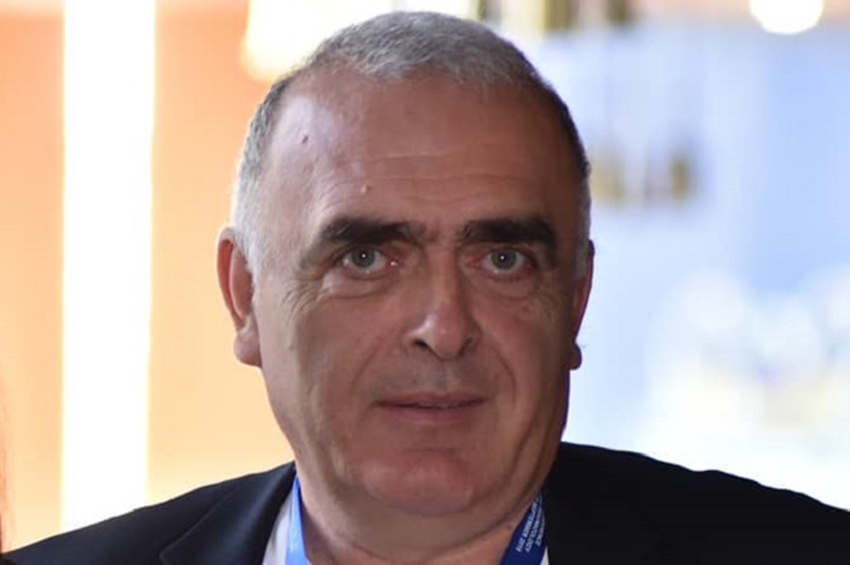Georgian doctor sentenced to two months detention in South Ossetia
Well-known Tbilisi doctor Vazha Gaprindashvili, recently detained by Russian servicemen in the Georgian-Ossetian conflict zone, was sentenced on November 15 to two months’ pre-trial detention in Tskhinvali, controlled by the Ossetian side.
According to preliminary information, he came to the region to provide assistance to a patient, but he was accused of illegally crossing the contact line in the conflict zone, which the Georgian side calls the administrative border, and the South Ossetian side calls the state border.
• Georgia: a village separated by barbed wire
• On the other side – parents’ graves, friends and memories from childhood
Vazha Gaprindashvili is a well-known doctor in Georgia; he is the president of the Association of Orthopedists and Traumatologists of Georgia and a leading specialist at the Mediclub clinic.
_____________

Information about the fact of the detention of Vazha Gaprindashvili was released on November 13. Later it turned out that he had been detained four days earlier on November 9.
Vazha Gaprindashvili’s wife, Tamila Lapanashvili, in an interview with JAMnews said that he left home on November 9 in the morning, saying that he had to visit a patient.
Towards 15:30 he called and informed his family that he had been detained by the Russian military.
“I don’t know how and why he ended up there. We were shocked by his call,” says Tamila Lapanashvili.
• The wars waged in the Caucasus in the 1990s continues on the pages of school textbooks
According to her, “my husband could only have ended up on the occupied territory to carry out his professional duties.”
“I can’t assume anything else, we’ve no ties with the people there,” she says.
Tamila Lapanashvili recalled one detail: a few days ago Georgian television channels reported on Tamar Gigauri, a resident of Akhalgori, who received serious injuries as a result of a fall of seven meters into a well.
The family wanted to transport her for treatment to Tbilisi, but the de facto authorities of South Ossetia and the Russian military did not allow her to cross the administrative border.
“We in the family discussed this message. I remember that he expressed regret out loud, he noticed that the unfortunate woman must have needed surgery, apparently she had received many fractures. But he did not say anything about a trip to the conflict zone”, Tamila Lapanashvili says.
Tamar Gigauri is a school teacher in the village of Ikoti, Akhalgori district. Her family is still trying in vain to get permission from the local authorities and transport her to a Tbilisi clinic.
Officially, little is known about the detention of the doctor Vazha Gaprindashvili.
The Georgian side has practically no information about the circumstances of his detention.
The Security Committee of South Ossetia states that he was detained in the vicinity of the villages of Orchosani and Ahmadzhi. Orchosani is 43 kilometers from Gori, and hosts a Russian military base. It is not controlled by Tbilisi.
The Gaprindashvili family, having learned about his detention, on the same day, that is, November 9, notified Georgian law enforcement agencies. But the information about the arrest of the Georgian doctor was made public only four days later – and that was not in the Georgian media, but in the South Ossetian.
On November 15, the South Ossetian security committee issued a statement stating that “a South Ossetian court sentenced Vazha Gaprindashvili to two months pre-trial detention for illegally crossing the state border.”
It is known that at the same time with Gaprindashvili in the conflict zone on November 9-11, three more Georgian citizens were detained. The Akhalgori court sentenced them to administrative sentences, they paid fines and are already at large.
Reaction of the Georgian authorities
The apparatus of the Minister of State for Reconciliation and Civil Equality made the first statement on the issue of Gaprindashvili only on November 14.
However, representatives of the Georgian authorities claim that silence in the Gaprindashvili case does not mean that the government was inactive in the early days:
“The Minister of State on the same day alerted the EU representative to Georgia… The Ministry of Foreign Affairs at the Geneva talks addressed the co-chairs of the negotiation process … We are making use of every opportunity to free him,” said Zviad Zviadadze, representative of the state minister’s reconciliation apparatus and civic equality.
The Gaprindashvili family also turned to the International Committee of the Red Cross for help.
The Red Cross is the only international organization that South Ossetian authorities have allowed to work in Tskhinvali.
Tbilisi doctors in support of Gaprindashvili
Georgian doctors held a rally in support of Vazha Gaprindashvili near Tbilisi Medical University.
“Most of the doctors working in Tskhinvali received their education in Tbilisi. We appeal to them, our colleagues, with a request to express solidarity, to show humanity and demand from the authorities to release the detained doctor,” said one of the doctors in the protest.
____________________________________________
Georgian citizens are regularly detained in the zone of the Georgian-Ossetian conflict by the Russian military for “violating the state border.”
After the August 2008 war, the Russian military occupied the conflict zone along its entire perimeter. Banners with the inscriptions “state border” and “South Ossetia” began to be installed along the administrative border. The border itself is sometimes indicated by barbed wire.
The Russian and Ossetian sides call this process “borderisation.”
According to their representatives, when setting the border, they are guided by old, pre-war maps of the Soviet period. In the Akhalgori district, they drew the border so that all settlements are on the South Ossetian side.
The Georgian side calls this process a “creeping occupation” and states that the Russian side each time grabs new pieces of Georgian land.
Barbed wire in Georgian villages is often stretched so that villages into two parts. As a result, dozens of families lose their land, access to cemeteries, remaining on the other side of the barbed wire.



















